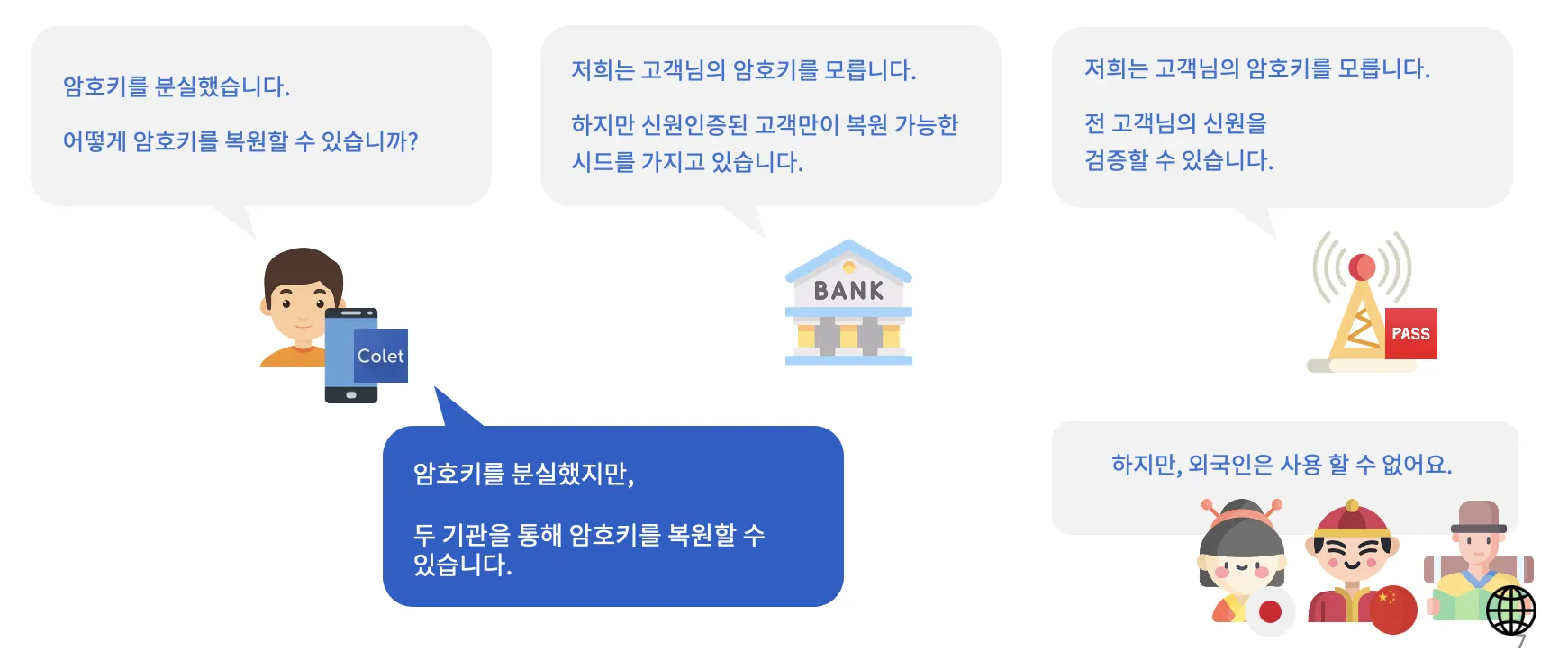 Why is Bitcoin cryptographic key management necessary?
Why is Bitcoin cryptographic key management necessary?
Managing Bitcoin cryptographic keys is difficult and inconvenient. As a result, some people lose their bitcoins.
We all acknowledge the limitations of current cryptographic key management technologies.
"Measures are needed to reduce human error in digital assets."
- enisa (EU agency)
"Personal key recovery plans must be proposed when participating in CBDC projects."
- Bank of Korea
"Key recovery solutions are necessary when financial institutions adopt blockchain."
- Korea Financial Security Agency
"Key recovery is the most important aspect of crypto asset services."
- Ministry of SMEs and Startups (Korea)
Current cryptographic key management methods
Individuals store keys by themselves
This method is difficult, inconvenient, and has inherent risks of loss.
Entrusting key storage to centralized authorities
This approach has security issues and can cause massive damage during hacking incidents. It often violates regulations as well.
How can cryptographic keys be safely stored without anyone else knowing?
This is where Noncelab’s journey began.
 Noncelab’s Journey to Solve This Problem
Noncelab’s Journey to Solve This Problem
 First attempt: Using multi-signature (third-party authentication)
First attempt: Using multi-signature (third-party authentication)
We reduced external dependencies and costs by using mobile phone identity verification.
However, foreigners cannot use this technology, so it is not applicable overseas.
•
The Busan Blockchain Special Zone wanted to provide digital currency to foreign tourists, but this was difficult.
•
Our partners with many overseas customers could not use this technology.
•
For more details:  Related Patent
Related Patent
 Second attempt: Using mobile photos and GPS codes
Second attempt: Using mobile photos and GPS codes
•
Uses user data-based authentication technology.
•
Mobile photos contain a lot of data that users can easily remember but others cannot guess.
If you remember the location where the photo was taken, key recovery is possible.
•
However, the following limitations remain:
•
People tend to remember only a broad area, not exact locations.
•
GPS codes for approximate locations strongly depend on specific map service providers.
 Third attempt: Enhanced Brain Wallet
Third attempt: Enhanced Brain Wallet
What is a brain wallet?
It is a method of storing cryptographic keys in the owner’s memory rather than on paper or digital devices.
•
Advantages
◦
No physical storage needed, so safe from physical security risks.
◦
Can hide bitcoins even across borders or under censorship.
•
Disadvantages
◦
Difficult to recover if memory fails.
◦
Vulnerable to brute-force attacks.
How we overcame these limitations:
•
Increased randomness by using three or more phrases.
•
Used Taproot to significantly reduce fees compared to traditional multisig.
•
For more details: Patent
•
To see it in action: Demo video






